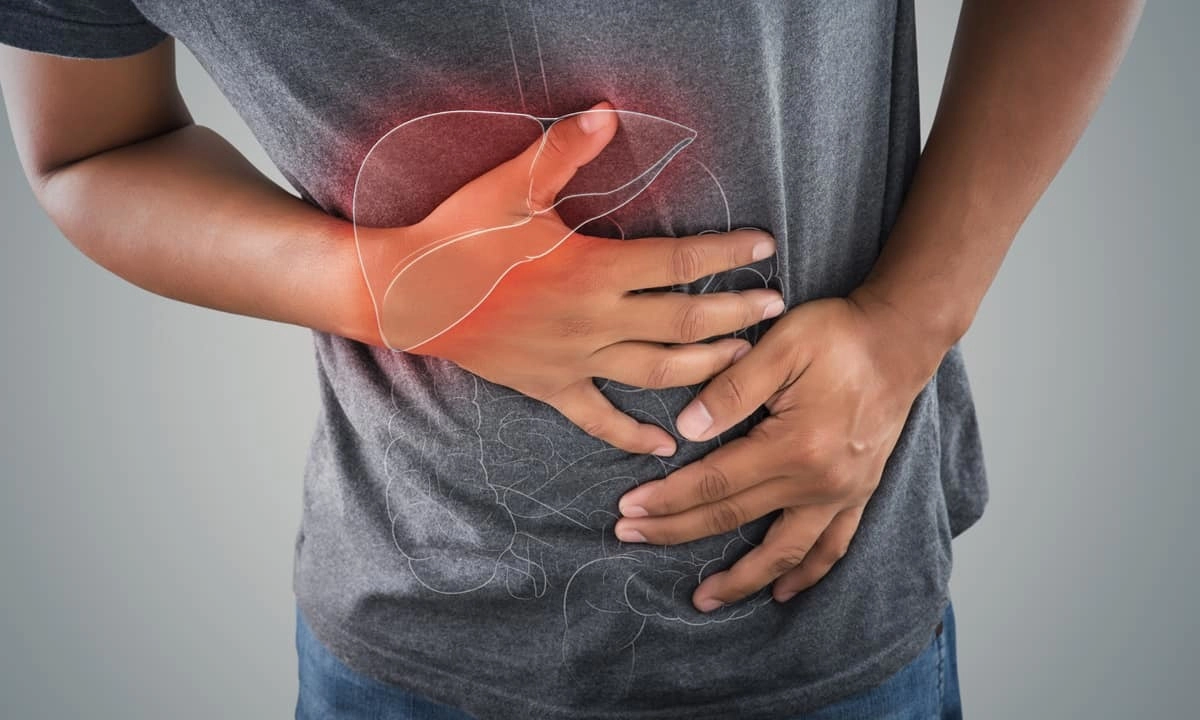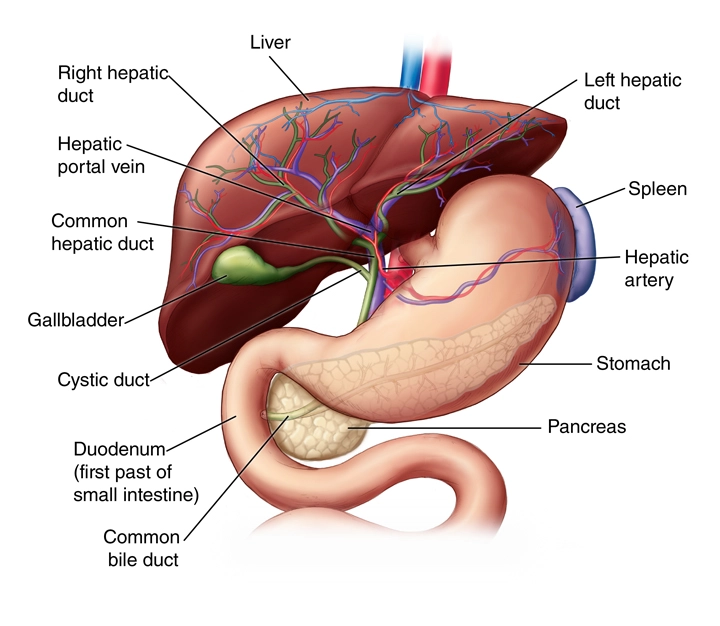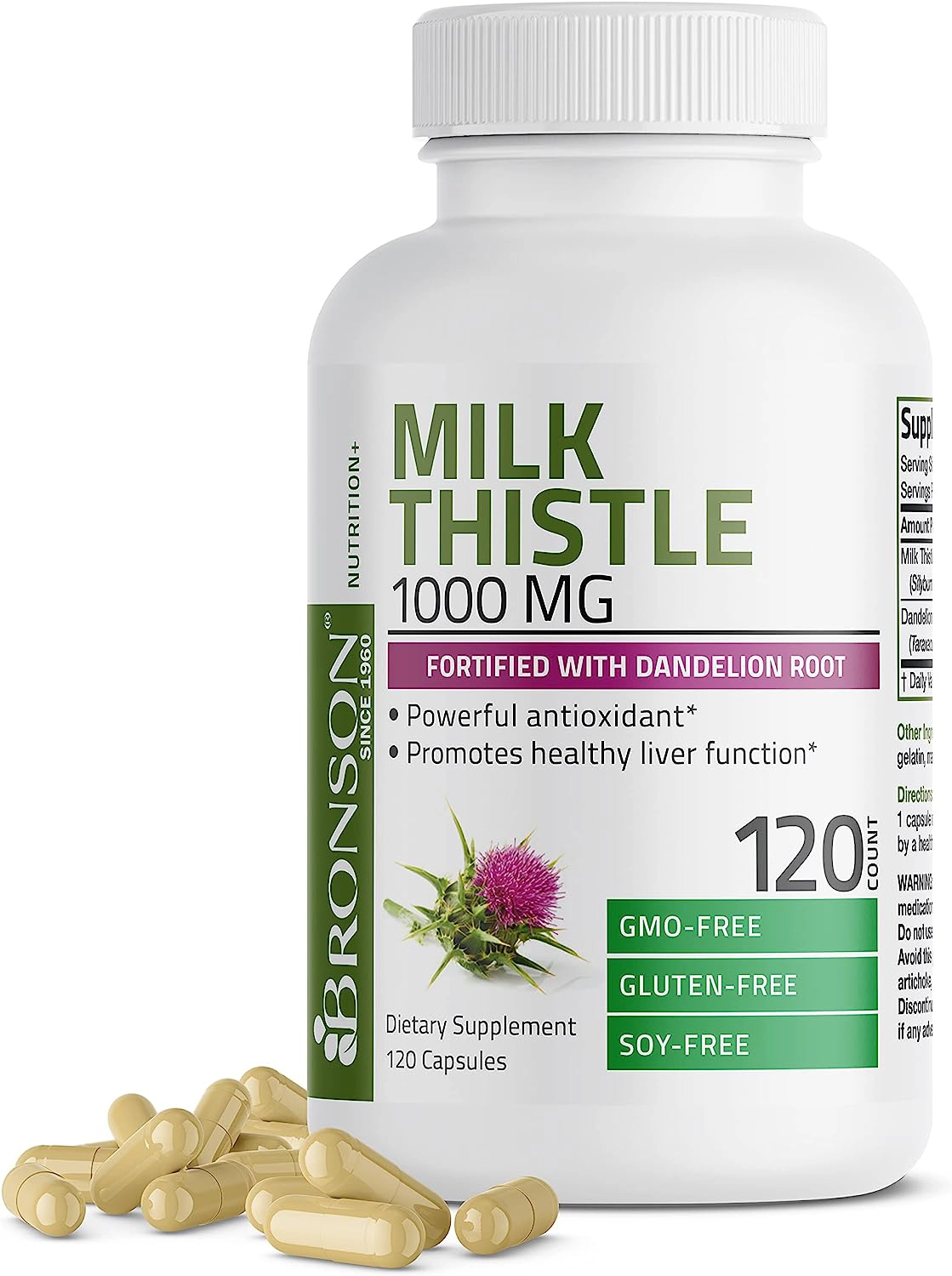
- 0 Comments
- admin
What Your Liver Is Telling You-

One of the most functional organs in our bodies, and yet the liver is one of the most neglected by far. From partying, to day-to-day toxin intake- we sure do know how to make our liver quiver!
What your liver is saying-
I’m not a doctor, but I can provide with 10 researched information about signs that might indicate a damaged liver. If you suspect you have liver issues, it’s important to consult a medical professional for accurate diagnosis and advice.
Jaundice: Yellowing of the skin and eyes is a common sign of liver damage or disease. It occurs when there’s a buildup of bilirubin, a yellow pigment produced when red blood cells break down, because the liver is unable to process it properly.
Fatigue: Chronic fatigue or feeling excessively tired can be a symptom of liver damage. The liver plays a role in metabolizing nutrients, and when it’s not functioning properly, it can lead to a lack of energy.
Digestive Issues: Liver damage can result in various digestive problems, including nausea, vomiting, loss of appetite, and unexplained weight loss.
Swelling: Accumulation of fluid in the abdomen (ascites) or in the legs and ankles (edema) can indicate liver damage. The liver’s reduced ability to produce proteins that regulate fluid balance can lead to this symptom.
Dark Urine: Urine that is darker in color than usual could indicate liver problems. This can be a result of the liver’s inability to properly process bilirubin.
Pale Stools: Stools that are unusually light or pale can indicate that there’s a problem with the liver or the bile ducts.
Itchy Skin: Liver damage can cause a buildup of bile salts in the body, leading to itching and discomfort on the skin.
Abdominal Pain: Pain or discomfort in the upper right side of the abdomen could be a sign of liver issues. However, this can also be caused by various other conditions.
Bruising Easily: The liver plays a role in producing clotting factors. Liver damage can lead to a decreased production of these factors, resulting in a tendency to bruise more easily.
Changes in Mental Function: Advanced liver damage can lead to a condition known as hepatic encephalopathy, which can cause confusion, difficulty concentrating, and changes in behavior.
Bronson Milk Thistle 1000mg
About this item
- Liver Health Support: The liver helps the body remove toxins and converts nutrients from our body into substances we can use.
- Antioxidant Support: Milk thistle is a powerful antioxidant that can help maintain healthy liver function.*
- High Potency: Each capsule contains 1,000mg of milk thistle to provide high-power liver support and contains an additional 50mg of dandelion root for additional benefits.*
- Trusted Since 1960:
It’s important to remember that these symptoms can be caused by various conditions, and experiencing one or more of these symptoms doesn’t necessarily mean you have liver damage. If you suspect you have liver issues, it’s best to consult a healthcare professional for proper diagnosis and guidance. They can run tests and provide personalized advice based on your situation.

What can cause liver damage?
The odds of liver damage can vary widely depending on a variety of factors, including individual lifestyle choices, genetics, medical history, and exposure to risk factors. Here are some factors that can increase the likelihood of liver damage:
Alcohol Consumption: Excessive and prolonged alcohol consumption is a leading cause of liver damage, including conditions like alcoholic liver disease and cirrhosis.
Viral Hepatitis: Chronic infections with hepatitis B or C viruses can lead to inflammation and damage to the liver over time.
Obesity: Obesity is associated with an increased risk of non-alcoholic fatty liver disease (NAFLD), which can progress to more severe liver conditions.
Unhealthy Diet: A diet high in saturated fats, sugars, and processed foods can contribute to the development of fatty liver disease and metabolic syndrome, both of which can lead to liver damage.
Medications and Supplements: Some medications, especially when taken in high doses or for prolonged periods, can cause liver damage. Certain herbal supplements and over-the-counter medications can also have this effect.
Toxic Exposures: Exposure to toxins, chemicals, and certain environmental pollutants can harm the liver.
Medical Conditions: Certain medical conditions, such as autoimmune diseases and genetic disorders, can increase the risk of liver damage.
Diabetes: Individuals with diabetes are at a higher risk of developing NAFLD and other liver-related complications.
Unprotected Sex and Sharing Needles: These behaviors can increase the risk of acquiring viral hepatitis, which can lead to liver damage.
Unsanitary Tattoo or Piercing Practices: Practices that involve the use of unsterilized equipment can lead to infections that affect the liver.
It’s important to note that while these factors can increase the odds of liver damage, they don’t guarantee it. Many people engage in risky behaviors without developing liver issues, while others may be more genetically predisposed to liver damage.
To reduce the risk of liver damage, it’s important to maintain a healthy lifestyle, including moderate alcohol consumption (or abstaining from alcohol), eating a balanced diet, exercising regularly, and avoiding exposure to toxins. Regular medical check-ups can help identify any potential liver problems early on. If you have concerns about your liver health or are engaging in behaviors that could be harmful to your liver, it’s a good idea to consult a healthcare professional for guidance and support.
What can doctors do?
A liver function test (LFT) is a set of blood tests that provide information about the health and function of the liver. These tests help healthcare professionals assess how well the liver is performing its vital functions and whether there are any signs of liver damage or disease. The tests typically included in a liver function panel can vary, but some common components are:
Alanine Aminotransferase (ALT): ALT is an enzyme primarily found in the liver. Elevated levels of ALT in the blood can indicate liver damage or inflammation.
Aspartate Aminotransferase (AST): Like ALT, AST is an enzyme found in the liver and other tissues. Elevated AST levels can also indicate liver damage, although AST is found in other organs as well.
Alkaline Phosphatase (ALP): ALP is an enzyme present in the liver, bile ducts, and bones. Elevated ALP levels might suggest liver or bile duct issues, as well as bone-related conditions.
Total Bilirubin: Bilirubin is a waste product produced when red blood cells break down. High levels of bilirubin in the blood can indicate liver problems or issues with bile flow.
Direct Bilirubin: Also known as conjugated bilirubin, elevated levels can suggest problems with bile flow and liver health.
Total Protein: Total protein levels in the blood can provide information about the liver’s ability to synthesize proteins, which are crucial for various bodily functions.
Albumin: Albumin is a protein produced by the liver. Low albumin levels can indicate liver dysfunction or other health conditions.
Globulin: This is another protein produced by the liver. The ratio of albumin to globulin can provide insight into certain health conditions.
Prothrombin Time (PT) and International Normalized Ratio (INR): These tests assess how well the blood clots. The liver produces clotting factors, and changes in these values can indicate liver dysfunction.
It’s important to note that a liver function test is just one part of a comprehensive assessment of liver health. Depending on the results of these tests and a person’s medical history, additional tests might be ordered to further evaluate liver function and potential causes of liver damage.
Interpreting the results of liver function tests requires medical expertise, as various factors can influence the values. If you suspect liver issues or have been advised to undergo liver function tests, it’s best to consult a healthcare professional for accurate interpretation and guidance.
Before taking any supplements, it’s essential to consult with a healthcare professional, as they can provide personalized advice based on your health status, medical history, and any medications you might be taking. Additionally, self-medicating with supplements can be risky, especially if you have existing liver conditions.
Here are a few supplements that are sometimes discussed in relation to liver health:
Milk Thistle (Silymarin): Milk thistle is a popular herbal supplement that contains an active compound called silymarin. Some studies suggest that silymarin might have antioxidant and anti-inflammatory effects that could potentially support liver health, particularly in cases of liver damage or fatty liver disease.

N-Acetylcysteine (NAC): NAC is a compound that can help boost glutathione levels in the body. Glutathione is an important antioxidant that plays a role in detoxification processes. NAC has been investigated for its potential benefits in liver health, especially in cases of acetaminophen (Tylenol) overdose.
Vitamin E: Vitamin E is an antioxidant that might have a protective effect on liver cells. However, high doses of vitamin E should be used cautiously, as excessive intake might be harmful.
Vitamin D: Some studies have suggested a connection between vitamin D deficiency and liver disease. However, the relationship is complex, and more research is needed to understand the role of vitamin D in liver health.
Omega-3 Fatty Acids: Omega-3 fatty acids, found in fish oil and certain plant sources, have anti-inflammatory properties and might be beneficial for liver health. They could potentially help with conditions like non-alcoholic fatty liver disease (NAFLD).
Turmeric/Curcumin: Curcumin is a compound found in turmeric, a spice known for its anti-inflammatory properties. Some research has explored curcumin’s potential benefits for liver health, but more studies are needed to establish its effectiveness.
B Vitamins: B vitamins, particularly B6, B12, and folic acid, play a role in various bodily functions, including liver health. However, most people can obtain sufficient B vitamins through a balanced diet.
Remember, while these supplements might be discussed in the context of liver health, they should not replace a healthy lifestyle and appropriate medical care. If you’re concerned about your liver health or are considering using supplements, it’s important to consult a healthcare professional. They can help determine whether these supplements are appropriate for you, advise on proper dosages, and monitor for any potential interactions with medications or existing health conditions.
Bronson Milk Thistle 1000mg
About this item
- Liver Health Support: The liver helps the body remove toxins and converts nutrients from our body into substances we can use.
- Antioxidant Support: Milk thistle is a powerful antioxidant that can help maintain healthy liver function.*
- High Potency: Each capsule contains 1,000mg of milk thistle to provide high-power liver support and contains an additional 50mg of dandelion root for additional benefits.*
- Trusted Since 1960:
Conclusion:
although many research fields may not suggest liver aids of any sort in supplementation, I am leaning towards milk thistle to be a major regulator for the liver. Having scoured the Internet I am finding multiple mixes of what people can do to actually help the liver. Upon examination I would suggest in my own opinion that drinking black coffee, taking turmeric, and taking milk thistle would be optimal.


